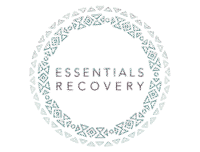Detoxification, often referred to as detox, is the first crucial step in overcoming substance use disorder. It’s a process that allows the body to rid itself of harmful substances while managing the physical symptoms of withdrawal. For many individuals, detox lays the groundwork for long-term recovery and marks the beginning of a life free from drug or alcohol dependence. Although challenging, detox is a necessary and manageable phase when approached with professional care and emotional support.
The Goals of Detoxification
The primary goal of detox is to eliminate substances from the body safely and effectively. However, it goes beyond physical cleansing. Detox also helps to stabilize the individual, manage withdrawal symptoms, and prepare them for further treatment. During this period, medical staff may offer medication, therapy, and monitoring to ensure both physical safety and emotional well-being. Achieving a stable state is essential before beginning long-term treatment programs like counseling, behavioral therapy, or residential rehab.
Types of Detox Programs
There are several different types of detox programs available, each suited to various levels of addiction and personal needs. Some common formats include:
Medical Detox
This is the most structured form of detox. Medical professionals monitor patients around the clock, often using medications to reduce withdrawal symptoms. This is especially necessary for substances like alcohol, benzodiazepines, or opioids, which can cause severe or life-threatening withdrawal effects.
Outpatient Detox
For those with mild to moderate addiction, outpatient detox allows individuals to continue living at home while visiting a clinic or healthcare provider for monitoring. This option offers more flexibility but requires a stable home environment and a strong support system.
Social Detox
Also known as non-medical detox, this approach provides support and supervision but does not use medication. It may occur in a residential setting with counselors or support staff available to assist.
Each detox path has its advantages and is chosen based on medical history, substance use severity, and overall health.
Withdrawal Symptoms: What to Expect
Withdrawal is the body’s reaction to the absence of a substance it has become dependent on. Symptoms can vary depending on the substance, the length of use, and individual health conditions. Some common withdrawal symptoms include:
- Anxiety and irritability
- Nausea and vomiting
- Sweating or chills
- Insomnia
- Muscle aches
- Cravings
- Depression
In more severe cases, withdrawal from substances like alcohol or benzodiazepines can result in seizures or hallucinations. These symptoms highlight the importance of undergoing detox under professional supervision to ensure safety and comfort.
The Importance of Professional Supervision
Attempting to detox alone, also known as “cold turkey,” can be dangerous and even fatal. Professional detox centers provide a controlled and safe environment where trained staff can monitor vital signs, address complications, and offer support. Medical detox is especially important for individuals addicted to substances with high-risk withdrawal symptoms. Doctors may prescribe medications such as methadone, buprenorphine, or benzodiazepines to manage pain and cravings, making the process more bearable.
Professional supervision also offers mental health support. Anxiety, depression, and confusion are common during detox, and having counselors available can help ease emotional distress.
Emotional Support During Detox
Detox doesn’t just challenge the body—it also places significant stress on the mind. Feelings of guilt, shame, fear, or sadness are normal and should not be faced alone. Emotional support from professionals, family, or peer support groups can make a substantial difference. Therapeutic services such as counseling, mindfulness practices, or group therapy may be introduced during detox to help individuals understand their emotions and feel less isolated in their journey.
Support from loved ones is also critical. Encouraging words, a listening ear, and physical presence can offer comfort, motivation, and a sense of accountability.
Nutrition and Hydration in Detox
Proper nutrition and hydration are vital components of successful detoxification. Substance abuse can deplete the body’s nutrients and impair its ability to absorb essential vitamins and minerals. A detox program often includes nutritional support to help restore physical health. Fresh fruits, vegetables, lean proteins, and whole grains support the body’s recovery, while hydration helps flush out toxins more efficiently.
Additionally, nutritional therapy can help address imbalances that may contribute to mood swings or fatigue. A well-fed body is better equipped to handle the challenges of withdrawal.
Transitioning from Detox to Treatment
Detox is not a cure for addiction—it’s the first step in a comprehensive treatment plan. Once the body is stabilized, it’s critical to move into the next phase of recovery. This may include residential rehab, outpatient therapy, counseling, or support groups. Continuing care addresses the psychological and behavioral patterns that contribute to substance use and helps prevent relapse.
Some treatment centers integrate detox with therapy from the beginning, ensuring a smooth and consistent transition. This continuity helps individuals build momentum and reinforces the commitment to recovery.
The Role of Family and Friends
Family and friends play an essential role during and after detox. Their support can motivate the individual to complete the process and pursue long-term treatment. It’s important for loved ones to educate themselves about addiction and detox so they can offer appropriate support. Attending family therapy or support groups like Al-Anon can help families learn to cope with challenges and avoid enabling behaviors.
Positive encouragement, patience, and setting healthy boundaries can help create a supportive environment that fosters success in recovery.
Barriers to Detox and How to Overcome Them
Many individuals hesitate to enter detox for a variety of reasons, including fear of withdrawal, shame, financial concerns, or lack of support. Recognizing and addressing these barriers is important. Some ways to overcome them include:
- Educating yourself about what to expect in detox
- Seeking financial assistance or exploring insurance coverage options
- Talking to a healthcare provider or addiction specialist
- Connecting with others who have gone through detox
Understanding that detox is a medical process—not a moral failing—can reduce feelings of guilt and encourage individuals to take the first step.
Detox and Co-Occurring Disorders
Many people with substance use disorders also experience mental health conditions such as anxiety, depression, or PTSD. Known as co-occurring disorders, these issues complicate the detox and recovery process. Integrated treatment is essential for success. In a professional detox setting, clinicians can assess for co-occurring disorders and begin developing a treatment plan that addresses both addiction and mental health.
Ignoring these conditions increases the risk of relapse. Addressing both simultaneously leads to better outcomes and a more stable recovery journey.
Myths About Detox
There are several myths surrounding detox that may discourage people from seeking help. Here are a few common misconceptions:
- “I can detox on my own.” Detoxing without supervision can be dangerous. Professional help ensures safety and comfort.
- “Detox is all I need to get better.” Detox is just the beginning. Without ongoing treatment, the risk of relapse remains high.
- “Withdrawal is unbearable.” While symptoms can be uncomfortable, medical detox and support can greatly reduce their severity.
Debunking these myths helps reduce stigma and encourages people to pursue the care they need.
Conclusion: Starting the Journey with Confidence
Detoxification is a powerful first step on the road to recovery. While it can be physically and emotionally challenging, it sets the foundation for a healthier, substance-free life. With professional support, a nurturing environment, and a strong follow-up treatment plan, individuals can emerge from detox ready to embrace long-term healing. Understanding the process and seeking out the right resources can transform fear into determination, helping each person take control of their recovery with confidence and hope. Call us today at 855-509-1697.



